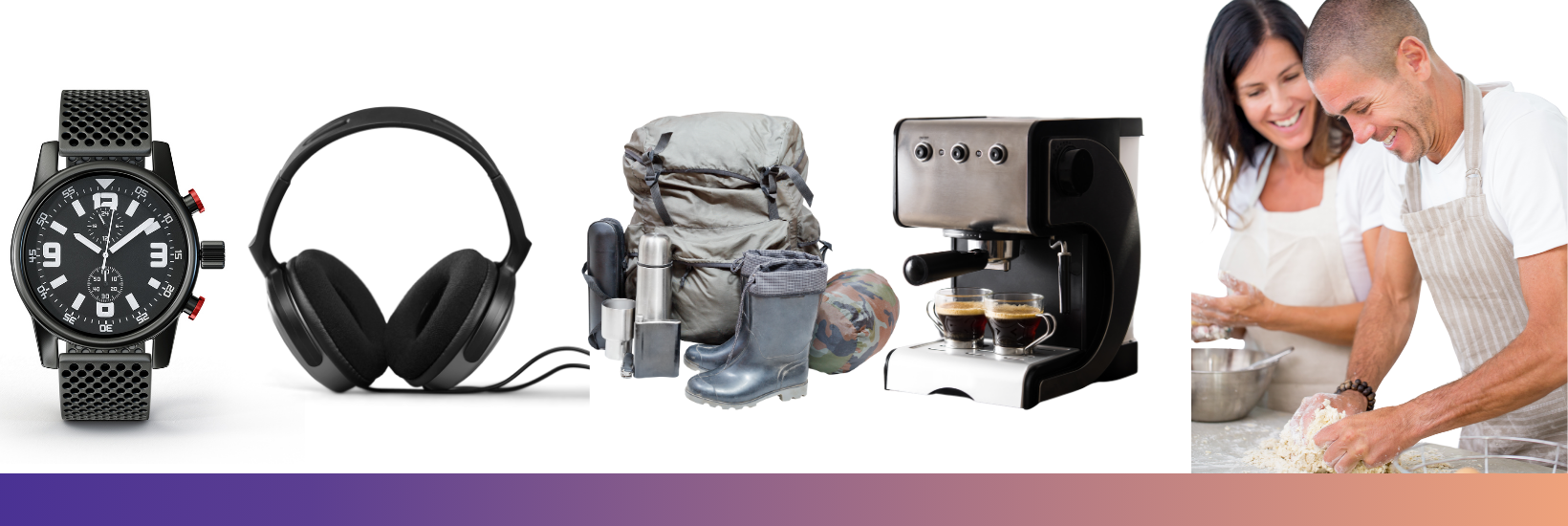Employee Gifts: A simple, Comprehensive Guide
February 28, 2024, In Employee Engagement
Whether you’re a manager looking to strengthen bonds within your team, or a human resources professional looking to create an excellent employee experience, this guide will help you express your gratitude through gifts. From gift personalization and budget planning to legal and cultural considerations, we cover all aspects to help you make informed and appreciated decisions. Let’s dive into the art of gift-giving in the workplace.
In this guide:
- Why are employee gifts important?
- The tradition of gifts in the workplace
- Understanding the different types of employee gifts
- The importance of personalization and thoughtful gift selection
- Budget planning for employee gifts
- Legal, cultural, and generational considerations in employee gift giving
- Setting up an employee gift program at your company
- Examples of successful gift programs
- Conclusion
1.Why are Employee Gifts So Important?

In today’s working world, employee recognition and appreciation are crucial to a company’s success. It helps build commitment and morale among your teams while creating a positive, motivating culture. While there are many different forms of recognition, gift programs stand out by offering tangible rewards. These initiatives are a concrete way of expressing your gratitude to your employees, helping to create a supportive work environment, and cultivating strong professional relationships.
Recognition and Appreciation
Employee gifts are not just material objects; they represent recognition of hard work and daily dedication. This recognition is much more than a mere formality. It strengthens the bond between a company and its staff, creating an atmosphere of trust and motivation within the team. According to an article in the Harvard Business Review, co-authored by King’s College doctoral student Shibeal O’Flaherty, King’s College associate professor Michael T. Sanders and Harvard assistant professor Ashley Whillans, recognition at work improves morale, productivity and employee loyalty to the organization.
In this way, employee gifts become much more than mere gestures; they represent tangible symbols of the company’s appreciation of the exceptional work performed by its staff.
Reinforcing Corporate Culture
Gift-giving reinforces corporate culture by expressing genuine recognition of individual contributions. These gestures embody the organization’s values, foster a sense of belonging and create a positive, collaborative environment.
Motivation and Commitment
Well-thought-out gifts can greatly motivate employees. Indeed, when employees feel appreciated, they are more inclined to invest themselves in their work and give their best. As Nathalie Bernard, a lecturer and researcher in human resources management, points out in her thesis “Bien-être au travail et performance de l’entreprise : une analyse par les paradoxes”, employees who feel recognized are more committed and perform better.
Impact on Employee Retention
In today’s competitive job market, implementing employee retention strategies is crucial. In an article for HR Reporter, Michelle Brown, communications and media relations specialist at Best Buy Canada, mentions that gift programs are one of the tactics employers can use to retain talent, as it helps employees feel more appreciated.
2. The Tradition of Gifts in the Workplace

Over the centuries, the giving of gifts has become an inescapable tradition in many cultures around the world. Ancient customs of gift giving to mark special occasions or to express gratitude are deeply rooted in human history.
However, it was during the 20th century that this practice began to be integrated into the professional context in a more formalized way. This evolution is the result of a growing awareness of the value of human capital within companies. Executives and managers understood that employee commitment and satisfaction were key to the success and longevity of their organization. As a result, giving gifts became a way of celebrating employees’ dedication, thanking them for their hard work and motivating them to keep giving their best.
The 1970s and 1980s were particularly significant in the history of gift-giving in the workplace. It was then that companies began to introduce formal employee recognition programs. These were aimed at highlighting employees’ outstanding achievements and rewarding them on special occasions such as service anniversaries, end-of-year celebrations and retirements.
Today, gift-giving in the workplace is a common and accepted practice. Companies continue to invest in employee recognition programs, aware of the positive impact they have on their workers’ motivation, loyalty, and productivity. The gifts offered have become more varied and personalized, reflecting the diversity of employees’ interests and needs.
In conclusion, giving gifts to employees is much more than just a formality; it’s a fundamental part of the employee lifecycle, fostering a positive and dynamic corporate culture. In the following sections, we’ll explore various gift types, budgeting tips and legal and cultural considerations to help you choose the perfect gift for your employees.
3. Understanding the Different Types of Employee Gifts

Having introduced the importance of gifts in the professional environment, let’s now explore the different types of presents you can offer your employees. This section aims to help you distinguish between the various options available, depending on the occasions and significant milestones in your employees’ lives.
Traditional Gifts
Traditional employee gifts are carefully chosen to mark special moments or recognize remarkable achievements. For example, engraved trophies or personalized commemorative plaques are often offered at ceremonies to celebrate service anniversaries or outstanding professional achievements. High-end watches and elegant desk accessories, such as quality pens or personalized stationery sets, are also classic gifts to mark important milestones, such as the successful completion of a major project or a significant milestone.
Traditional gifts can have many positive effects on company dynamics, including creating a sense of pride in professional achievements.
Modern Innovative Gifts
Modern, innovative gift-giving is of crucial importance in today’s world. Who doesn’t enjoy receiving the latest technological gadget, the latest trendy kitchenware, or a subscription to a digital service of their choice? As well as bringing joy, these gifts help to increase employee satisfaction by creating a positive and stimulating work atmosphere. In this way, the company demonstrates its commitment to the well-being of its staff, reinforcing their motivation and commitment.
The occasions for offering these innovative gifts are numerous, whether it is to celebrate a service anniversary, the festive season, mark life events, or reward team achievements. A culture of recognition through modern gifts thus helps to improve morale, productivity, and employee loyalty, while reinforcing the company’s image as a modern, caring employer.
Experience Gifts
A current trend in corporate gifts is the importance of standing out from the crowd by offering activities and experiences that will leave lasting memories. Unlike traditional objects, unique experiences remain engraved in recipients’ memories over the long term. This approach goes beyond simple recognition; it strengthens the bond between the organization and its employees, demonstrating genuine appreciation. By opting for activities and packages, companies can make a real impression on their employees, boosting their commitment and contributing to a positive, memorable corporate culture.
This type of gift is especially important for Generation Y, who, according to the experts at Bamboo RH, “are fond of experiences and are looking to give meaning to their lives”. Today, millennials represent the largest working-age population in the country according to Statistics Canada, and around 40% of employees in Quebec (combined with Generation Z), according to Annie Boilard, President of the Annie RH Network. By 2030, these generations will represent 75% of the workforce, according to the human resources expert. It is therefore essential to take their gift preferences into account, and to offer them the opportunity to enjoy experiences that will thank them for their work and recognize their achievements.
Personalized Gifts
Personalized gifts play a special role in the world of thoughtful gestures to employees. Whether through engraved items, personalized products, experiences tailored to individual tastes or a card with a note of gratitude, these types of gifts transcend the simple act of giving to become tangible tokens of appreciation. By personalizing their gifts, companies demonstrate that they recognize and appreciate each person’s unique traits. These gestures strengthen the emotional bond between the organization and its employees, creating a work atmosphere where each individual feels valued and understood.
The best times to offer a personalized gift often lie in significant moments such as birthdays and anniversaries, outstanding achievements, team celebrations or a special life event.
Eco-Responsible Gifts
Regardless of the occasion, eco-responsible products should be an integral part of employee gift-giving. They embody a commitment to sustainability and environmental responsibility in the professional world. Whether through the choice of recycled materials, reusable items or eco-friendly products, these gifts demonstrate an awareness of contemporary ecological issues. More than a simple gesture of recognition, eco-responsible gifts also reinforce a company’s reputation as a socially responsible player. By adopting this approach, companies not only contribute to preserving the environment, but also inspire ecological awareness among their employees, thus fostering a corporate culture oriented towards ethical and sustainable values.
In the long term, this can certainly have an impact on a company’s ability to attract new talent. According to a Deloitte survey, 55% of Generation Z employees and 54% of millennials worldwide inquire about an organization’s environmental impact and policies before accepting a job. By offering eco-responsible gifts, you’ll be at the heart of this growing concern, helping you to attract these environmentally conscious young talents.
Choice in Gifts
By allowing recipients to choose from a wide range of options, companies demonstrate a deep consideration for the uniqueness of each employee. This personalized approach reinforces the feeling of appreciation, as it shows that the company values individual preferences. This flexibility also helps to create an inclusive working atmosphere, where each individual feels respected and considered.
“Offering choice in gifts is more than just an option; it’s a sensible recognition strategy to ensure that every present is greeted with enthusiasm and used with appreciation. By allowing employees to select from a variety of products and experiences, companies demonstrate a deep understanding of individual preferences as well as respect for their employees’ freedom of choice, reinforcing the emotional connection and positive impact of recognition within the team” – Patrick Dupuis, Account Director and Recognition Expert at Altrum.
By understanding these different categories, you can choose gifts that not only recognize your employees’ efforts, but also reflect your company’s values and culture. In the following sections, we’ll look at practical tips on how to budget for these gifts, as well as the legal and cultural aspects to consider.
For more employee gifts ideas for each of these category, read our full blog article.
where your employees can choose their ideal reward from over 10,000 products and experiences
4. The Importance of Personalization and a Thoughtful Gift Selection

An essential aspect of corporate gifts is personalization, a gesture that demonstrates special care and understanding of your employees’ interests, and needs. This section explores how personalizing gifts can strengthen bonds within your company and create a culture of deep appreciation.
The Importance of Personalization
When gifts are tailored to the individual preferences and specific interests of each employee, you’re offering more than just formal recognition. Employees feel not only appreciated for their contribution, but also understood as individuals. This personalization generates a sense of appreciation that goes beyond the professional context, sparking a positive emotional connection to the company. Employees are therefore more likely to feel engaged and motivated when their efforts are recognized in a personal way, creating a culture that fosters well-being and job satisfaction.
Some examples of personalized gifts for employees include engraved items such as trophies, everyday objects such as coffee mugs or embroidered clothing, package experiences linked to their interests such as a day at the spa or a cooking class, and much more.
The key is to offer gifts that reflect each employee’s preferences. At first glance, this may seem complicated, but some platforms, such as Celebration, allow you to offer a multitude of products and experiences for your employees to choose from.
The Nanuk Case
Take Nanuk, for example. This company, which manufactures suitcases and bags, recently revamped its service-year program to allow celebrated employees to choose a gift for themselves. The program was an immediate hit with the staff, as it allows them to select a gift tailored to their preferences and interests, whether it’s a specific product or a package experience.
“These are personalized, useful gifts that will serve for real!” said Alain Boissonneault, Certified Industrial Relations Consultant at Nanuk.
By allowing employees to select their own gifts, Nanuk has succeeded in creating a service-year program that truly meets everyone’s expectations and interests. The personalized and useful gifts offered by the company are not only appreciated by the staff but are also used in their daily lives. This approach strengthens the bond between the company and its employees, showing them that they are valued and that their preferences are considered.
In conclusion, choosing personalized gifts tailored to employees’ individual preferences is a winning strategy for companies wishing to create a positive and stimulating working environment.
Ideas for Personalizing Gifts
Incorporating active listening into the gift selection process for employees is a great way to show that their preferences and interests are truly considered. Here are three ideas for giving personalized gifts through active listening:
1. Conduct targeted surveys or one-to-one interviews:
Use polls and surveys to gather specific information about your employees’ gift preferences. Ask targeted questions about their interests, hobbies, and the types of experiences they enjoy. Carefully analyze responses for patterns and trends, making it easier to personalize gifts.
2. Implement collaborative idea boxes:
Create idea boxes where employees can drop off gift suggestions. Encourage active listening by reading suggestions carefully and acting on them.
3. Analyze program performance:
In-depth analysis of a company’s current gift programs is essential for optimizing the personalization of offers. By examining data from previous programs, HR professionals can identify recurring preferences and trends among employees. This in-depth understanding enables current gift offers to be adjusted to better meet the specific needs and tastes of the workforce. What’s more, by assessing employee feedback and reactions to previous gifts, managers can refine their strategies and offer gifts that generate maximum appreciation within the team, reinforcing the positive impact of recognition programs.
By integrating personalization into your gift strategy, you not only demonstrate a deep understanding of your employees, but also help create a more engaged and rewarding work environment. Personalized gifts, while sometimes more demanding in terms of planning, offer significant returns in terms of employee satisfaction and loyalty.
with a selection of products and experience to suit all tastes
5. Budget Planning for Employee Gifts
When it comes to employee gift giving, budget planning is not to be overlooked. This section aims to provide you with practical advice and strategies for developing a budget tailored to your organization, whether it’s a small-to-medium-sized business or a large multinational.
Evaluating the Available Budget
The first step in good budget planning for employee gifts is to determine an overall sum of money and/or resources you’re willing to allocate to this recognition initiative. This initial assessment should consider various parameters, including the size of your company, its current financial performance, and internal policies regarding spending on employee recognition. According to the SRHM, organizations should allocate at least 1% of their payroll budget to establishing a recognition program to achieve positive results in terms of attracting new talent, retaining staff, and increasing employee engagement. Depending on their profitability, some companies may increase their spending and allocate up to 10% of their payroll budget on recognition.
By determining the total budget available, companies can then make informed decisions, ensuring they remain in line with financial constraints and organizational objectives.
Establish a Budget per Employee
For a strategic gift budget breakdown, start by dividing your total gift budget by the number of employees in your company. This will enable you to determine an average amount per person. You can then adjust the amount to take account of factors such as seniority or position, to offer different levels of reward within the company. Exercise caution to fairly distribute the budget, preventing any perception of favoritism or discrimination. Make sure that each employee feels valued and recognized in an equitable and appropriate manner.
If your gift program is dedicated to years of service, then your budget planning might be a little different.
“In Quebec, what we see is that companies will offer gifts between $100 and $500 depending on seniority. These amounts are broken down into tiers, with a difference of about $20 for each additional year spent with the company,” says Annie Breton, Senior Account Manager and Recognition Expert at Altrum.
“Today, more and more organizations are placing importance on recognizing years of service as early as the first year. Even if material rewards are not always offered in the early years, the key is to get managers actively involved in the process,” adds the expert.
Budgeting for Managers
Allocating a rewards budget to managers is crucial to establishing a culture of recognition at all levels of the company. This budget gives supervisors the flexibility to express their appreciation in meaningful ways, whether through team outings, sporadic gifts, or even in the form of reward points. This approach allows managers and team leaders to take direct initiative in recognition, helping to anchor this practice at the heart of the organizational culture. It also strengthens the bond between teams and managers, stimulating employee commitment and loyalty.
For your managers, it would be a good idea to set a monthly or quarterly amount per employee to ensure constant recognition for everyone. This approach would make for a fair and transparent reward system, where every employee feels valued for his or her efforts and contribution to the company.
Taking Special Occasions into Account
When planning your budget, don’t forget to consider special events, such as service anniversaries, retirements, or year-end celebrations. This approach ensures that each occasion is adequately recognized without affecting the regular gift budget. What’s more, advance planning of these events is crucial to avoid unforeseen expenses, enabling more efficient and thoughtful budget management throughout the year.
Choosing gift options based on budget.
When selecting gifts for employees, it’s important to consider the budget allocated to each individual and the service milestone. This approach allows you to tailor the gift offering to the financial resources available, while recognizing employees’ individual contributions. In addition, you’ll need to be flexible and creative in your choice of gifts. Often, less expensive but carefully chosen and meaningful options can have a considerable impact, demonstrating recognition and appreciation while staying within the allocated budget.
Budget Monitoring and Re-Evaluation
To ensure effective monitoring of budgets allocated to employee gifts, companies will need to keep a record of their expenditure. This practice allows you to keep accurate track of the costs incurred when purchasing gifts for employees, and to ensure that the budget is respected. It is also advisable to re-evaluate your gift requirements annually and adjust your budget accordingly.
When making this assessment, you will obviously need to consider the company’s financial situation, but also your employees’ feedback on the gifts they have received and their experience with your suppliers. This will ensure that the gift program remains both relevant to your employees and economically viable.
By following these steps and tips, you’ll be able to effectively plan a budget for employee gifts, ensuring a balanced and thoughtful approach that values your staff while respecting your company’s financial constraints.
6. Navigating the Legal, Cultural and Generational Considerations When Offering Gifts to Employees

When it comes to offering gifts to employees, it’s crucial to consider legal aspects, cultural sensitivities and generational preferences. This section aims to shed light on these often-complex aspects, while maintaining positive relations with your employees.
Legal Aspects of Corporate Gifts
In Quebec, the giving of gifts to employees can have tax implications that need to be taken into consideration. Low-value gifts for special occasions, such as Christmas, are generally tax-exempt for employees, provided their value remains below a predetermined threshold. However, if the value of the gift exceeds this threshold, it may be considered a taxable benefit and subject to income tax. It is therefore essential to respect tax guidelines and consider established limits.
In Canada, the tax rules are similar. Low-value gifts are often tax-free for employees, but once they exceed a certain amount, they may be subject to tax implications.
According to an article co-authored by Pamela L. Cross, National Business Leader, Tax Law Group at BLG, and law student Asma Bouali, the taxation of gifts depends not only on their value, but also on their nature. So, you’ll need to manage awards, gift cards and years-of-service gifts separately, in accordance with their specific rules.
As an employer, you should therefore familiarize yourself with the tax rules in force and, if necessary, consult a tax professional to ensure compliance with tax laws in the countries where your employees are located. In summary, while expressing appreciation through gifts is commonplace, it’s important to remain aware.
To find out more about Canadian and Quebec tax rules, read our full article.
Cultural Sensitivity in Employee Gifts
In a multicultural work environment, it’s essential to choose gifts that respect employees’ cultural and religious diversity. By offering gifts that are sensitive to the different cultures, organizations demonstrate their commitment to equality and respect for everyone. This strengthens each employee’s sense of belonging and creates an inclusive work environment.
A concrete example of inclusivity would be to opt for a gift catalog including options tailored to different religious holidays. Rather than offering generic gifts focused on a single celebration, an employer could set up a gift catalog including options tailored to Christmas, Hanukkah, Eid, Diwali, and other important religious celebrations. Employees can then choose gifts that reflect their cultural and religious identity, promoting diversity and inclusion.
According to the Canadian Commercial Corporation (CCC), a government agency specializing in trade relations between Canadian companies and foreign governments, the first step in developing a culturally sensitive program is to take the time to understand the different values, beliefs and customs of each culture. To do this, you’ll need to be open to learning about different cultural practices, customs and social norms. This means conducting in-depth research into different cultural practices, but above all, engaging in enriching conversations with your employees from diverse backgrounds.
By fostering mutual understanding and respect, you can create an inclusive gift program that truly meets the needs and expectations of everyone, whatever their cultural background.
Generational Considerations for Your Gift Programs
Gift tastes and expectations vary from one generation to the next. That’s why it’s important to offer something that appeals to everyone.
Baby boomers, generally attached to traditional values, appreciate gifts that reflect a classic, timeless style. They may be sensitive to gifts such as luxury watches, quality handicrafts or refined cultural experiences. They attach great importance to the quality and durability of gifts.
Members of Generation X, on the other hand, are generally technology savvy and may prefer electronic gadgets or accessories to facilitate their daily professional lives.
Millennials, or Generation Y, are often drawn to personalized, experience-based gifts, such as wellness activities, online courses, unique experiences, or eco-friendly items.
Finally, Generation Z is strongly influenced by social media and characterized by a strong social conscience. Trendy items, new electronic gadgets and eco-friendly products will be very well received by this generation. Finally, social and cultural experiences, such as tickets to music, fashion or technology events, can also be excellent choices for this connected and innovative generation.
Navigating the Legal, Cultural, and Generational Aspects of Your Gift Programs
Navigating the legal, cultural and generational aspects of gift programs can be a complex challenge, but it’s a crucial step in ensuring the success and inclusiveness of these initiatives within your company. As a first step, pay close attention to the regulations and legal obligations linked to benefits and gifts, making sure to respect the limits defined by current legislation. Follow training courses and consult experts in the field to ensure that your gift programs remain gifts for your employees and do not turn into taxable expenses.
Secondly, consider the cultural diversity within your team. Engage in open dialogues to understand the different traditions and cultural preferences of your employees. This is crucial to tailoring your gift programs in a respectful and inclusive way. Keep in mind that what may be considered a thoughtful gesture in one culture may be perceived differently in another. By skilfully balancing legal and cultural aspects, you’ll create gift programs that celebrate diversity in a way that complies with legal standards, thus strengthening cohesion within your team.
Finally, also consider generational aspects when designing your gift programs. Each generation has its own values, preferences, and expectations when it comes to recognition. Take the time to understand the specific preferences of each demographic group within your team. For example, Baby Boomers may appreciate traditional, long-lasting gifts, while Generation Z might be more receptive to technology-driven rewards or innovative experiences. By adapting your gift programs to accommodate generational differences, you’ll reinforce the relevance and impact of these initiatives, fostering a harmonious and inclusive work climate.
7. Setting Up an Employee Gift Program in Your Company
Implementing a systematic employee gift program is a key step towards reinforcing corporate culture and enhancing the value of your employees. This section provides a practical guide to setting up such a program in your organization, based on concrete examples and expert testimonials.
Setting up an employee gift program requires thorough planning. Here are the steps to follow to create a successful gift program:
1. Define the purpose of the program: Clarify the objectives of the gift program. What do you want to achieve? Reinforce motivation, reward outstanding performance, or foster a positive environment?
2. Know your employees: Understand your staff’s needs, interests, and preferences. Engage in conversations to obtain information about their tastes and expectations regarding the gift program.
3. Establish a budget: Determine the budget allocated to the gift program. This will influence the type of gifts you can offer. To guide you in this step, refer to the “Budget planning for employee gifts” section of this blog post.
4. Choose the type of gifts: Select gifts that are adapted to the company’s culture and employees’ preferences. Opt for varied and personalized options to offer choice and gifts that match your employees’ individual preferences.
5. Choose the right gift partner: Identify reliable gift partners aligned with your corporate values. Working with experienced suppliers can simplify logistics management, offer a variety of attractive options, and ensure a seamless experience for HR professionals. Make sure your chosen partner can efficiently process orders, offer customization options, and meet deadlines to simplify implementation and ongoing program management.
6. Establish processes and communicate information clearly: Create transparent processes for gift selection and distribution. Inform employees about the gift program, explaining objectives, criteria, and how to participate. Clear communication contributes to transparency and buy-in.
7. Provide opportunities for feedback: Encourage employees to give feedback on the program.It can help you adjust and improve the program over time.
8. Evaluate the impact of your program: Regularly assess the program’s effectiveness by reviewing results and gathering feedback from employees. Use these evaluations to adjust if necessary.
9. Celebrate diversity: Make sure the program is inclusive by celebrating cultural diversity and offering options that respect different traditions.
10. Promote ongoing recognition: Make recognition part of the corporate culture by fostering an attitude of ongoing appreciation beyond the formal gift program.
Examples of Successful Gift Programs
The WB Games Case: Reinventing the Art of Employee Surprise and Recognition on a Daily Basis
WB Games Montreal, a division of Warner Bros Interactive Entertainment, highlighted its strong corporate culture through recognition initiatives long before the pandemic. Faced with the challenges of keeping employees connected during physical distancing, they launched an advent calendar, offering prizes and virtual activities. In collaboration with Altrum, they integrated the Celebration platform, allowing employees to choose gifts online, offering increased flexibility and personalization. This approach was praised for its simplified logistics management and helped exceed engagement targets, underlining that recognition remains essential to cultivating a sense of belonging and boosting employee engagement, even in a virtual context.
“Employees don’t have to choose a gift, because choosing a gift for 400 people is always very complicated, both in terms of taste and logistics. The Celebration solution gives us this flexibility, while offering a wide choice, so we’re sure to please everyone. Managing and coordinating the purchase of gifts becomes a much simpler task, as the winner logs in, orders, and receives the gift at home” – Aude Paradis, Human Resources Advisor at WB Games.

Dessercom, an organization specializing in pre-hospital emergency care and non-emergency medical transport, aimed to improve its employee experience to offer them a stimulating career path throughout their professional lives.
To achieve this, they decided to train their managers in the daily practice of recognition, and to introduce a gift program to celebrate work anniversaries from the first year. As a result, they set up the Celebration platform, which enables their employees to choose a personalized gift from an online store reflecting the company’s image to celebrate their service milestones.
“There’s a variety of choices on the platform. Whether it’s experiences, going to the spa or buying a watch, it’s diverse, and it caters to everyone’s interests,” testified Sabryna G., Human Resources Advisor at Dessercom.
By using Celebration, the HR team also benefits from turnkey gift management, from invitations to delivery. A win-win solution

8. Conclusion and Key Points of Our Guide to Employee Gifts

We’ve come to the end of our comprehensive guide to employee gifting, an essential aspect of corporate culture that deserves special attention. Let’s summarize the key points and practical ideas we’ve explored.
Summary of Key Points
- Personalization and cultural sensitivity: employee gifts must be chosen with care, considering their personality and culture.
- Budgetary and legal planning: effective budget management and an understanding of the legal implications are crucial to a successful gift program.
- Structured gift programs: Implementing a structured gift program can greatly improve employee morale and motivation.
As Patrick Dupuis, Account Director and Recognition Expert for Altrum, points out, “Offering thoughtful gifts to employees is more than just a gesture; it’s an investment in their well-being, their loyalty and their attachment to the company and its values.”
Employee Satisfaction and the Impact of Gifts
Employee gifts, when well chosen and managed, have a significant impact on employee satisfaction and commitment. They are not only a means of recognizing effort, but also a powerful tool for reinforcing corporate culture.
By following the tips and strategies presented in this guide, you’ll be able to develop an employee gift program that not only meets the needs of your team, but also contributes to a positive and motivating work environment.











